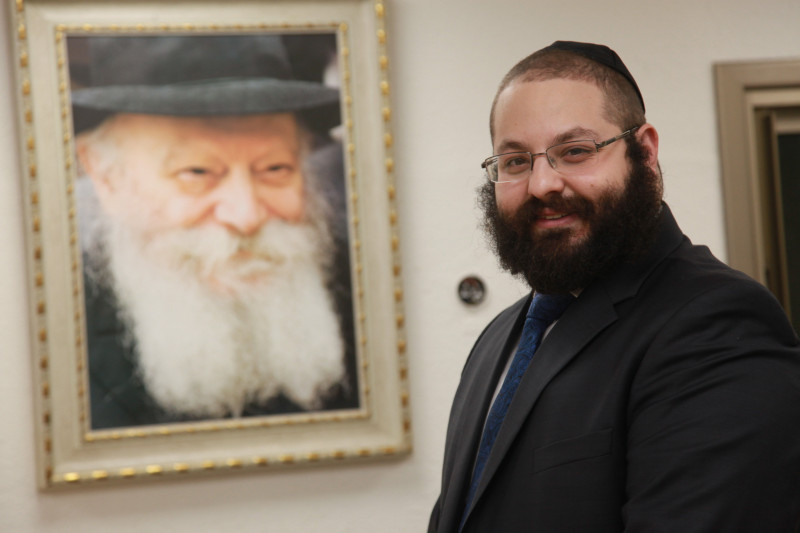Photo: “We pray like everyone else.” Rabbi Soudakoff // Photo: Yehonatan Shaul
A Viral Video Overwhelmed the Deaf With Daily Halachot • Chabad emissary for the deaf community in Israel in a full interview via WhatsApp
Moshe Nissenbaum
Posted in: 25.02.2019 10:000
Israel Hayom
A viral video on the Net this past week shows Rabbi Isser Lubetzky performing the Havdalah ceremony on Saturday night in sign language. The special video again raises the issue of how to deal with deafness in halakha. What do we do with prayer and mitzvot?
In the Gemara, the deaf are perceived as exempt from the commandments because of their disabilities, but today the situation is different due to technological development, such as hearing aids, and because of their public status. Today they are functioning, working and self-employed, so it is natural for them to have a leader and a rabbi who will guide them on these issues.
There are a number of leaders in Israel and around the world. One of them is Rabbi Yehoshua Soudakoff, who serves as Chabad emissary for the deaf community in Israel, and we interviewed him in WhatsApp because, like members of his community, he also copes with the limitations.
“I was born into a family of deaf people, and that’s my world,” he says. “I was born in Los Angeles and grew up there until the age of 15. I went on to the deaf in Toronto, where I also studied with Rabbi Isser, whom you saw in the video.
Two years ago, Rabbi Soudakoff immigrated to Israel and married his wife, who is also deaf. “When I grew up my mother was very active in the community of the deaf Jews and established an organization for Jews in the area, and this inspiration was given to me and passed on over the years to the Jewish Deaf Foundation in Israel, Deaf and hearing-impaired.”
“When it comes to halakhic questions about deaf people, it is worth noting that the sages say,” He is deaf, different and small exempt from mitzvot. “But the question is who exactly is deaf and whether it belongs to the people we call deaf today. There are many who say that this is a completely different matter, and therefore the Poskim tend to force deaf people to observe all the commandments, like any Jewish person, “explains Rabbi Soudakoff.
Of course, he stresses, there are still questions about specific mitzvot, such as hearing a shofar on Rosh Hashanah, because halakhah has to be heard directly, without external mediation. “Everyone solves the problems according to his ability, and there are those who hear through a cochlear implant or a hearing aid, and his rabbi sets it halachically, and there are those who lower the device and try to hear the blasts closely to get around Bat Kol’s interest.” The deaf will soon face one of the challenges, because according to Jewish law there is a duty to hear every word of the Book of Esther on Purim. “There are those who listen to the owner of the reader, and there are those who call themselves.”
“We pray as usual, like everyone else, that is to say aloud, but at the same time we translate the verses and the passages from the prayer into sign language, and we also inform the audience every time we are in the Siddur. The reading of the Torah on Shabbat and on Mondays and Thursdays is also done in the lashon ha’kodesh, where we pray, and also in sign language so that everyone will understand, the synagogue is also in accordance with the needs of the deaf who come to pray.
“Many people also ask me about the sign language between washing hands and blessing the mumzi (before eating bread), and unfortunately I tell them that it is still considered to be halting, as long as it has nothing to do with the beginning of the challah, such as asking for salt or a knife, etc. It is related to the meal and to bread it is a problem, “he says.
Rabbi Soudakoff estimates that there are between 10 and 15,000 deaf and hard of hearing in the community he leads. “Of course, there are many more, such as those that later became deaf in their lives, such as the elderly or other reasons, and there are those who do not belong to our community, and abroad there are a similar number of deaf Jews.”




